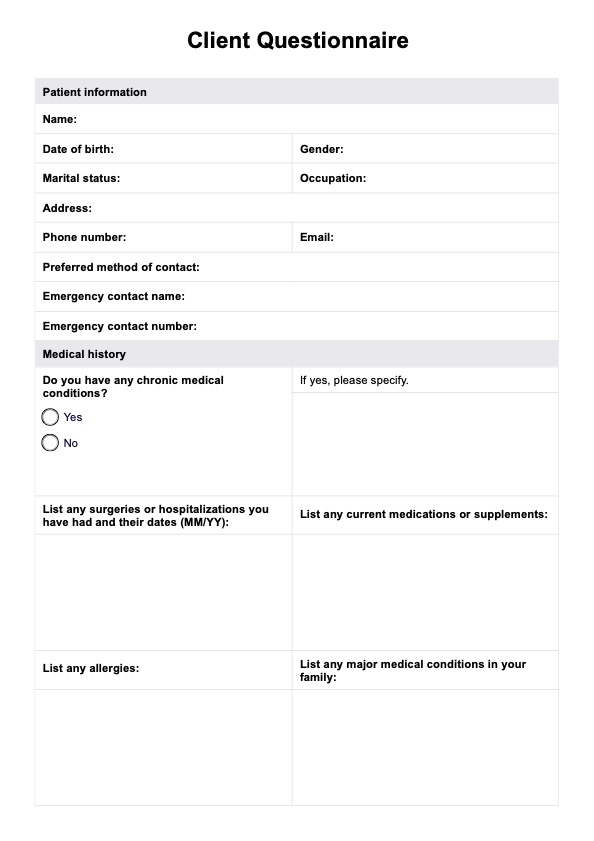Client Questionnaire Templates are used to collect essential client information and feedback. This data is critical for understanding the person's unique needs and concerns.

Client Questionnaire Template
Access our Client Questionnaire Template and gather necessary information or feedback from a new client. Get this for free today!
Client Questionnaire Template Template
Commonly asked questions
Personal information such as full name, gender, date of birth, email address, and phone number are crucial for identifying and personalizing services. Demographic data (such as date of birth and gender) and current health status are also vital because they give healthcare providers indications of the health risks and complications the person is likely to experience.
Understanding a client's health background helps medical professionals and other healthcare staff understand and cater to their unique needs, such as elevated risk factors.
EHR and practice management software
Get started for free
*No credit card required
Free
$0/usd
Unlimited clients
Telehealth
1GB of storage
Client portal text
Automated billing and online payments










